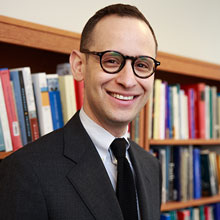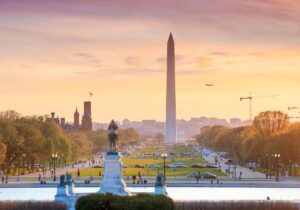How should we describe last week’s events? The terms “coup” or “insurrection” convey a seriousness that the brief occupation of the Capitol by oddly dressed misfits does not deserve. Despite promises by Republican members of Congress to object to the counting of several states’ electoral votes, there was no realistic possibility that Joe Biden’s victory would be prevented or even seriously delayed. Vice President Mike Pence himself rejected the novel claim that he possessed the constitutional authority to count only those states whose results he found agreeable.
Was it “terrorism”? Perhaps in intention: police discovered several bombs in and around the complex. But it is not yet known whether they were planted by members of the invading mob, coordinated with them, or were somehow at cross-purposes. The role of QAnon and other bizarre theories makes it particularly hard to decipher motives and intentions among Donald Trump’s most extreme supporters. A man who kills to unmask the lizard people is surely a murderer, but not exactly a terrorist in the conventional understanding.
What gives the events their special significance yet makes them so hard to describe is the role of Trump and his personal coterie. Since the election, they have asserted that the president is the victim of an elaborate conspiracy to deprive him of office. These are not the comparatively sober (although legally unsuccessful) arguments about the scope of legislative authority or the accuracy of verification procedures that appear in court filings and that nationally prominent Republicans prefer to emphasize. They are fantasies involving the falsification of millions of votes all over the country, in some versions at the direction of foreign powers.
No other president has publicly embraced such theories. No other president has urged legislatures to choose electors contrary to the certified popular vote, contrary to statute and state constitutions, or urged his supporters to intervene in the electoral process after the vote of the Electoral College. Nor have they personally amplified and praised their most unhinged and disreputable admirers.
Defenders point out that other politicians, some of the Democrats, have refused to concede defeat and insisted on the illegitimacy of the results. This ignores the heightened responsibility of the national executive to uphold the peaceful, if not always gracious, transfer of power that lies at the core of republican government. Behavior that would be obnoxious for a private citizen and inappropriate for a lower official is intolerable for a sitting president. Trump has never appreciated the distinction between himself and his office.
Defenders also point out that the president never endorsed violence. On a narrow reading of his remarks on Wednesday and on other occasions, that assessment is probably accurate. But the meaning of speech cannot be separated from its setting. Telling an angry crowd that the election was stolen from them and that they should march to the Capitol to ensure that their voices are heard may not meet the legal definition of incitement, but it does meet a political one—particularly when such statements follow Rudy Giuliani’s call for “trial by combat.”
Perhaps the best description of the episode comes from the Germans. It was a “putsch”: a disorganized, somewhat symbolic strike against legal authority, usually with a right-wing inflection. Now associated with the Nazis’ abortive 1923 effort, putsches were not an uncommon feature of European politics in the second half of the nineteenth century, as nationalist and populist sentiments turned against liberal institutions.
Americans like to believe that we immune to such tumults. But our own past includes events of a similar character, from the backwoods “rebellions” of the early republic to Redemptionist violence that followed the end of Reconstruction. Some of the efforts were more appealing in inspiration, others far less; some pantomimed, others deadly serious; some successful, others failures. What they have in common is that they have either been forgotten or dismissed as unfortunate exceptions to a placid democratic norm.
Wednesday’s episode was distressing partly because it touches that buried nerve of violence and instability, even in those who never knew the history. After the loss of five lives, the greatest damage was not to the Constitution or to the Capitol building. It was to our national pride. The republic will survive, but a particular form of American exceptionalism—the belief we escaped the political vices and dangers of the bad Old World behind—has become harder to sustain.







 Sponsor a student for Christianity & National Security 2024
Sponsor a student for Christianity & National Security 2024